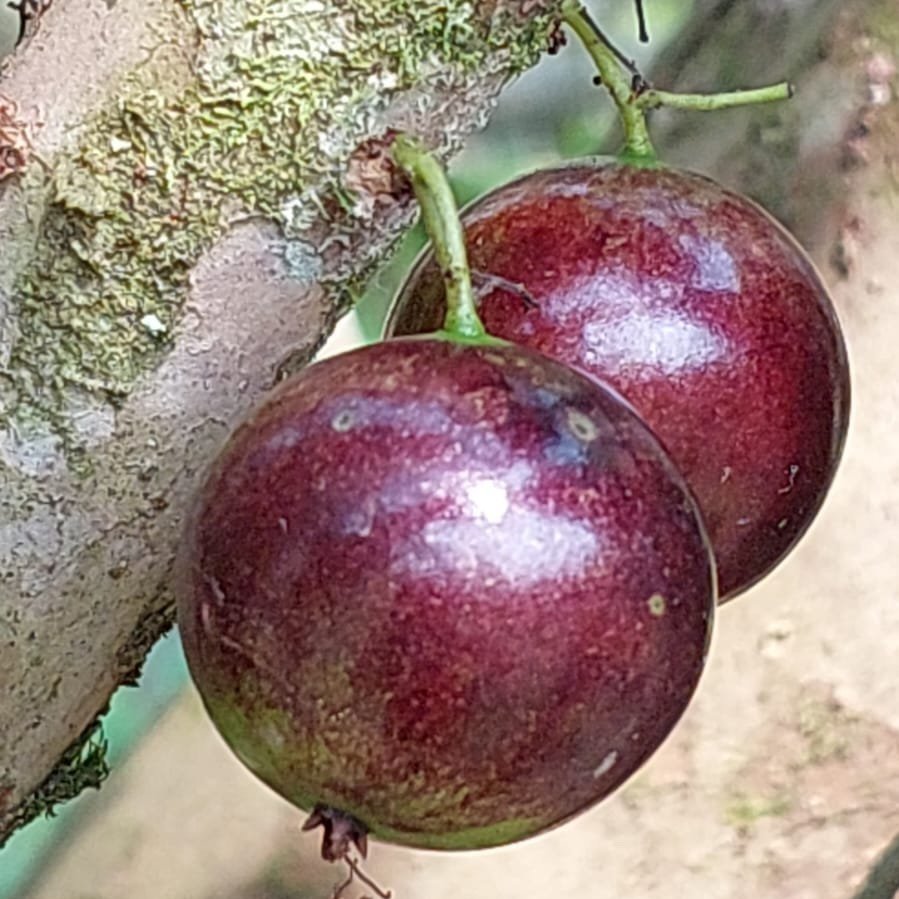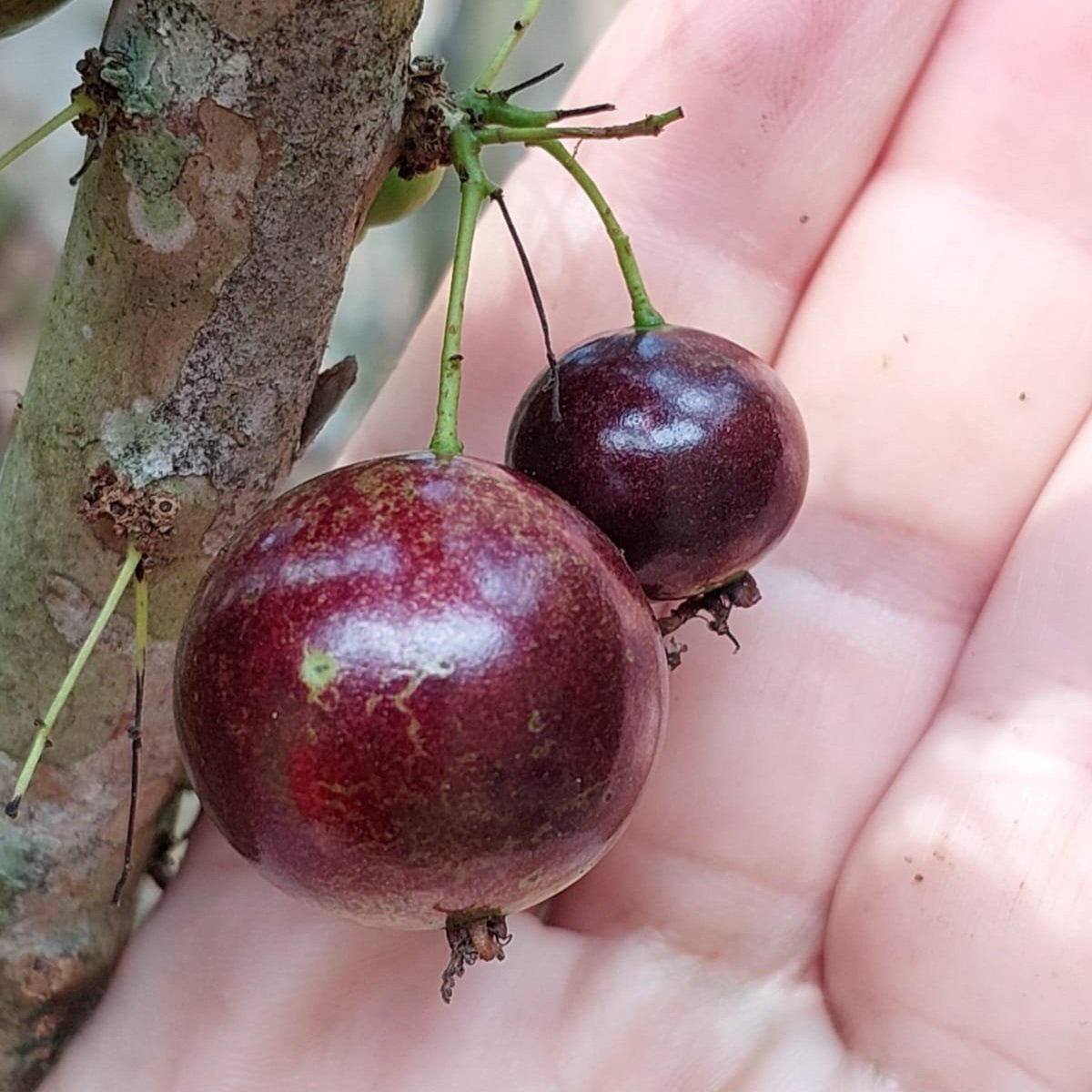Plinia Trunciflora Var. Unesp - GERMINATED
Seeds were imported from Brazil. This specie was developed by Universidade Estadual Paulista (Unesp), this variety of trunciflora produces very large, sweet fruits with small seeds and a marbled dark red and light skin (see photos). It is undoubtedly one of the best trunciflora varieties. Universidade Estadual Paulista (UNESP) is located in São Paulo State, Brazil. São Paulo State, Brazil, has a diverse climate due to its varying geography. The coastal areas experience a tropical climate with warm temperatures year-round, averaging 24°C to 28°C (75°F to 82°F), and a rainy season from November to March. The inland regions have a subtropical climate, with cooler winters (averaging 12°C to 20°C, or 54°F to 68°F) and hot, rainy summers. The climate is generally humid, making it suitable for a wide range of crops and vegetation. São Paulo State, Brazil, spans several USDA Hardiness Zones, primarily 10-11. Seeds are germinated and shipped in humid vermiculite.
Seeds were imported from Brazil. This specie was developed by Universidade Estadual Paulista (Unesp), this variety of trunciflora produces very large, sweet fruits with small seeds and a marbled dark red and light skin (see photos). It is undoubtedly one of the best trunciflora varieties. Universidade Estadual Paulista (UNESP) is located in São Paulo State, Brazil. São Paulo State, Brazil, has a diverse climate due to its varying geography. The coastal areas experience a tropical climate with warm temperatures year-round, averaging 24°C to 28°C (75°F to 82°F), and a rainy season from November to March. The inland regions have a subtropical climate, with cooler winters (averaging 12°C to 20°C, or 54°F to 68°F) and hot, rainy summers. The climate is generally humid, making it suitable for a wide range of crops and vegetation. São Paulo State, Brazil, spans several USDA Hardiness Zones, primarily 10-11. Seeds are germinated and shipped in humid vermiculite.
Seeds were imported from Brazil. This specie was developed by Universidade Estadual Paulista (Unesp), this variety of trunciflora produces very large, sweet fruits with small seeds and a marbled dark red and light skin (see photos). It is undoubtedly one of the best trunciflora varieties. Universidade Estadual Paulista (UNESP) is located in São Paulo State, Brazil. São Paulo State, Brazil, has a diverse climate due to its varying geography. The coastal areas experience a tropical climate with warm temperatures year-round, averaging 24°C to 28°C (75°F to 82°F), and a rainy season from November to March. The inland regions have a subtropical climate, with cooler winters (averaging 12°C to 20°C, or 54°F to 68°F) and hot, rainy summers. The climate is generally humid, making it suitable for a wide range of crops and vegetation. São Paulo State, Brazil, spans several USDA Hardiness Zones, primarily 10-11. Seeds are germinated and shipped in humid vermiculite.






